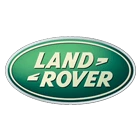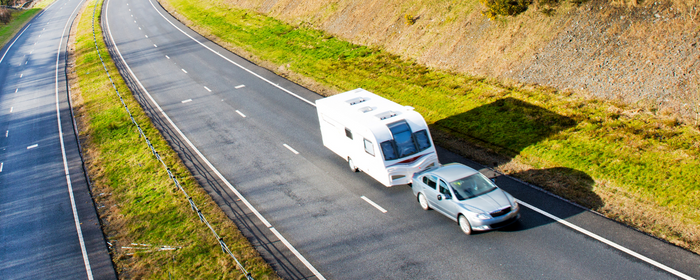
Towing Guide 2024
Welcome to our comprehensive towing guide! Whether you're an experienced tower or just starting out, towing a trailer, caravan or boat can be a daunting task. There are many things to consider, from the weight of your vehicle to the type of vehicle you use, and even the laws and regulations surrounding towing. That's why GB Vehicle Leasing have put together this guide, to provide you with all the information you need to tow safely and confidently.
We'll cover everything from towing FAQs to our top tips for towing. So, whether you're planning a long road trip or just need to tow a small trailer for a DIY project, our towing guide has got you covered.
Towing FAQs
View our towing FAQs below.
What does towing capacity mean?
The towing capacity is the maximum weight that a vehicle can safely tow. It is usually determined by the vehicle's engine power, transmission, brakes, frame strength, and suspension. Manufacturers usually specify the towing capacity, and it can vary significantly among different vehicles.
It's important to be aware of your vehicle’s towing capacity before towing any type of load, as surpassing this limit can put you and others on the road at risk of accidents, vehicle damage, and even legal penalties.
What is the towing capacity of my vehicle?
Towing capacity varies depending on the vehicle you have and its power, frame strength etc. The towing capacity is usually specified by the manufacturer, and you can typically find the towing capacity of your car in the owner's manual. Before choosing your new vehicle, you can search for this information online using its make, model, and year. Many car manufacturers provide this information on their websites.
What does Maximum Authorised Mass mean?
Maximum Authorised Mass (MAM) is the maximum permitted weight of a vehicle or trailer, including its own weight and the maximum load it's allowed to carry, as specified by the manufacturer. It's also known as Gross Vehicle Weight (GVW) or Gross Trailer Weight (GTW).
The MAM or GVW is an important consideration when towing a trailer, as it determines the maximum weight of the trailer you're legally allowed to tow with your vehicle. If you exceed the MAM or GVW, you risk overloading your vehicle or trailer, which can be dangerous and illegal.
Can I tow a trailer on my licence?
The rules regarding towing a trailer on your license vary depending on your location and the type of vehicle you hold a license for. It's important to check the laws and regulations in your area and make sure that you have the appropriate license and equipment before towing any load.
In the UK, a full driving licence is required to tow a trailer, horsebox, caravan or boat behind your car. As of December 16, 2021, anyone with a full driver’s licence is now permitted to tow a trailer or caravan up to a maximum authorised mass (MAM) of 3,500kg.
Drivers who passed their driving test before January 1, 1997, have always been permitted to drive a vehicle and trailer with a combined maximum weight of 8,250kg. However, if your driving test was completed on or after January 1, 1997, an additional driving test would be required to tow heavier caravans or trailers.
Do I require training before I tow?
Whether or not you require training before towing depends on several factors, including your driving experience, the size of the vehicle you will be towing with, the weight of the trailer or caravan you will be towing, and the laws and regulations in your area.
If you are an experienced driver and have towed before, you may not require any additional training. However, if you are new to towing or feel unsure about your skills, it's a good idea to seek out training to ensure that you are towing safely and correctly.
Although it may not be mandatory by law to undergo training, it's highly recommended to familiarize yourself with best practices for towing. This includes how to correctly load and secure your trailer, and how to adjust your driving style when towing. This can help make sure that you and your passengers stay safe while on the road and can also help prevent damage to your vehicle or trailer.
Can you tow with an automatic car?
Certainly, it is possible to tow using an automatic car. In fact, numerous modern automatic cars are specifically designed to tow and may even have advanced towing features built-in, such as a trailer sway control system. Nevertheless, it's important to acknowledge that not all automatic cars are suitable for towing. The vehicle's towing capacity, as well as the weight and type of load being towed, should be taken into consideration before attempting to tow with any vehicle.
What is the speed limit for towing a caravan or trailer?
Typically, the speed limit for vehicles that are towing a trailer or caravan is lower compared to other vehicles in most countries. In the UK, if you're towing a trailer or caravan, the speed limit on motorways or dual carriageways is 60mph, while on single carriageways, the speed limit is further reduced to 50mph.
What does braked towing weight mean?
Braked towing weight refers to the maximum weight a vehicle is legally allowed to tow when the trailer or caravan being towed has its own braking system. The braked towing weight limit takes into consideration the vehicle's engine power, transmission, brakes, suspension, and other factors, to determine the maximum weight that the vehicle can safely tow while the trailer has its own brakes to assist with stopping.
In most cases, the braked towing weight limit is higher than the unbraked towing weight limit. This is because the trailer's brakes can help reduce the strain on the vehicle's braking system and improve overall safety. It's essential to know the braked towing weight limit of your vehicle before towing any load.
Tips for Towing
Towing a trailer or caravan can be a challenging activity, so it's important to take the proper precautions and follow best practices to ensure safe and successful towing. Here are some tips for towing:
Know your vehicle's towing capacity: Before towing anything, make sure you know your vehicle's towing capacity and ensure that the weight of the load you're towing falls within that limit.
Check your equipment: Make sure that your hitch, towing cables, and other equipment are in good condition and securely attached before setting off on your journey.
Distribute the weight evenly: Proper weight distribution is crucial for safe towing. Make sure the weight is evenly distributed and that the load is secured properly.
Adjust your driving: Towing can affect the handling and stability of your vehicle, so you need to adjust your driving accordingly. Drive slower, brake earlier and more gradually, and allow more space for stopping.
Check your brakes: Make sure your brakes are in good working order and adjust the trailer brakes if necessary.
Be aware of your surroundings: Towing can affect your visibility, so make sure to use your mirrors and be aware of your surroundings at all times.
Take breaks: Towing can be tiring, so make sure to take regular breaks to rest and stretch your legs.
Practice makes perfect: If you're new to towing, practice in a safe and open space before hitting the open road.
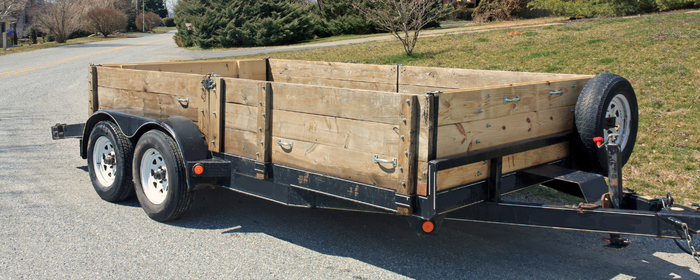
Can electric cars tow?
Yes, electric cars can tow, but the towing capacity and range of electric cars are typically lower than those of traditional petrol or diesel vehicles. The ability of an electric vehicle to tow largely depends on the vehicle's design and specifications, including the power output of the electric motor, battery capacity, and the weight of the vehicle itself. This is worth researching in more detail before choosing your new electric vehicle.
Some electric cars have been specifically designed with towing in mind and have a higher towing capacity than others. However, it's important to note that towing heavy loads or over long distances can significantly reduce the range of an electric car, so careful planning is required when using an electric car for towing purposes. Additionally, it's important to ensure that the electric car is equipped with the proper towing equipment and that you follow all safety guidelines and regulations when towing.
In conclusion, we hope that this towing guide has provided you with the knowledge and confidence to tow safely and effectively. Remember, towing requires careful planning, preparation, and execution. Always follow the manufacturer's guidelines and ensure that your vehicle and trailer are properly equipped and maintained. With the right equipment, preparation, and mindset, towing can be a rewarding and enjoyable experience. Thank you for reading, and safe travels! For additional information regarding towing regulations on UK roads, visit Gov.uk.
If you’re looking for a new vehicle ideal for towing, get in touch with GB Vehicle Leasing today! We would be more than happy to discuss your options with you and explain how leasing works. We offer an unrivalled choice of vehicles, so there’s many options to choose from, including some in stock lease cars.
Latest Posts
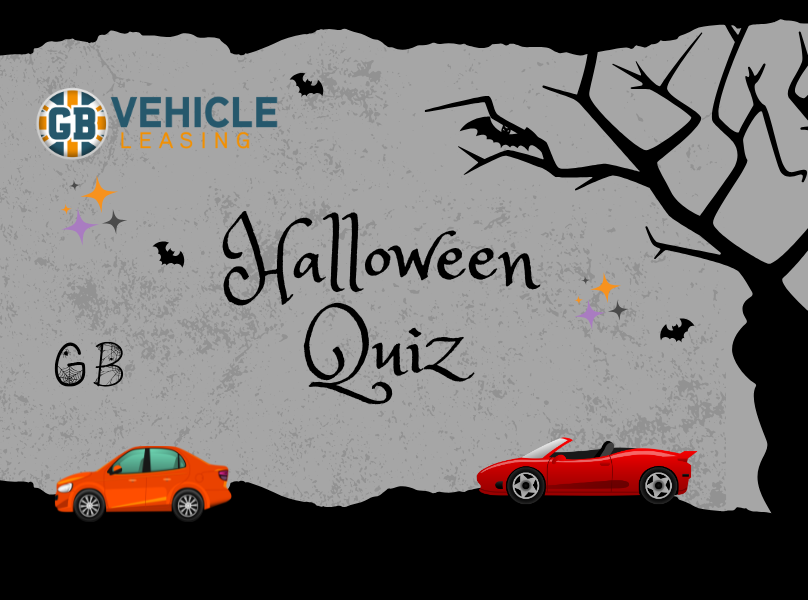
Discover Your Perfect Halloween Car Match
Find Your Halloween Ride: Which Spooky...

Jeep Avenger Review 2024
Meet the Jeep Avenger, the brand’s...
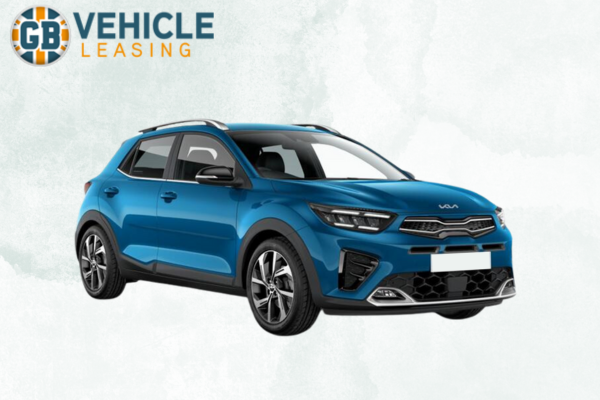
A Comprehensive Kia Stonic Review
See for yourself if this could...
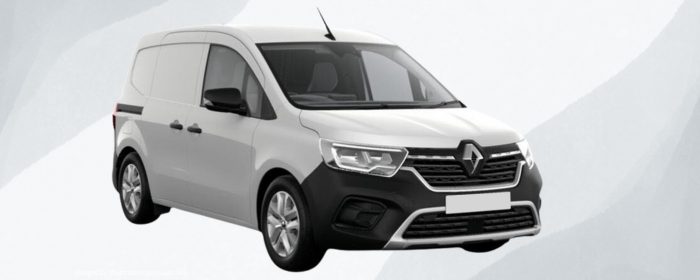
Cheap Vans to Lease 2024
Let's explore some of the cheapest...
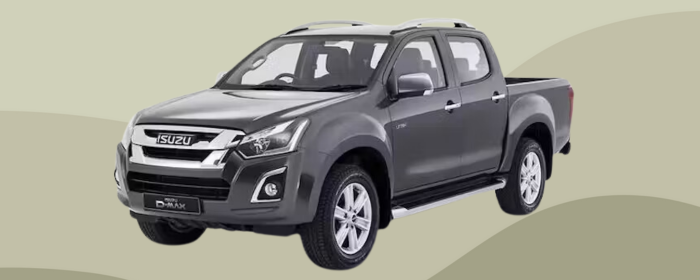
Exploring Excellence: Isuzu D-Max Review 2024
In this Isuzu D-Max review, we'll...







